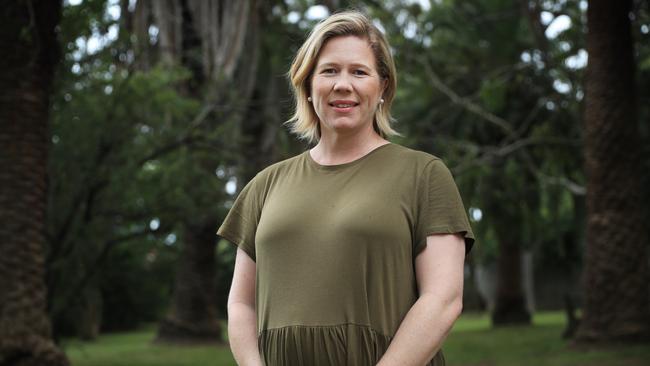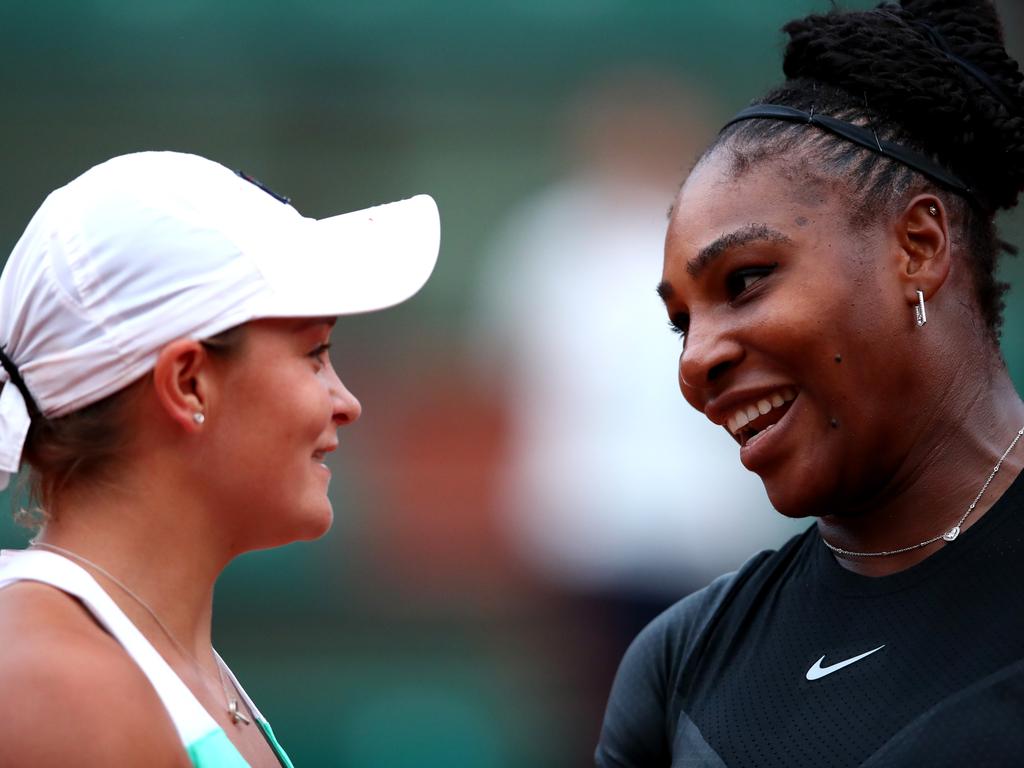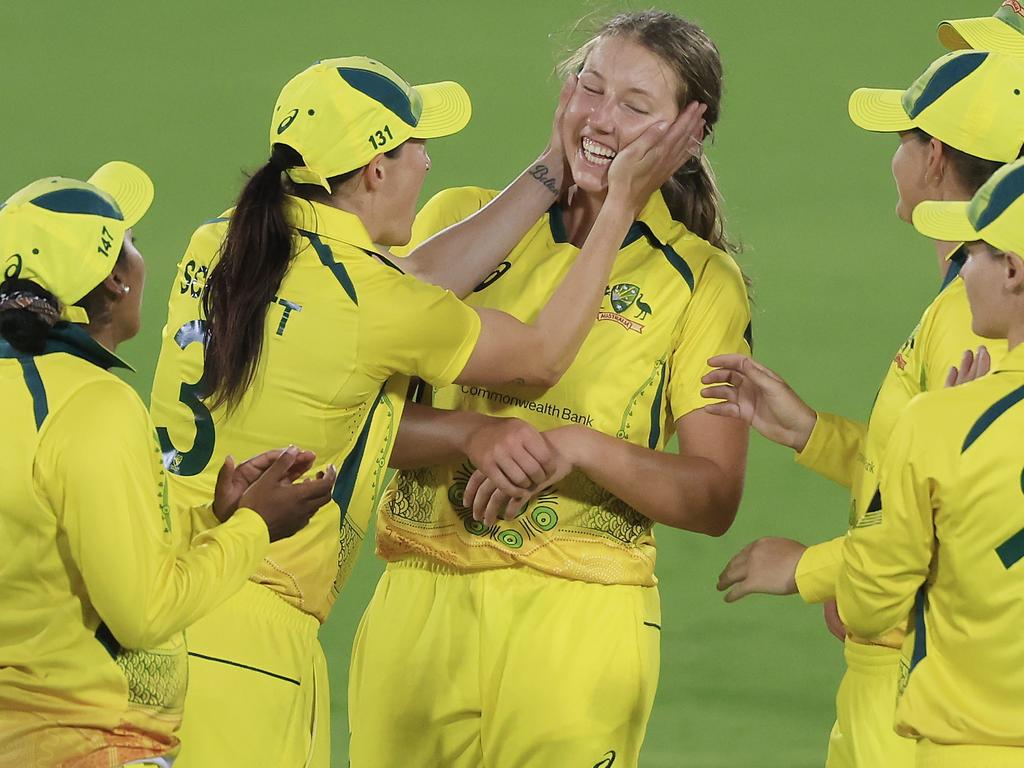Alex Blackwell appeals as an author of candour
In a new book, a World Cup winning captain reflects on the game that has given her so much but at times made her feel unwanted.

Born in Wagga Wagga, 10 minutes before her identical twin Kate, and raised on a farm in Yenda, Alex Blackwell paints an idyllic and intriguing story of a young woman who, along with her sister, would pore over cricket bat catalogues at home and compete against each other in endless games around the tree stump at her grandparents’ property near Griffith.
Their mother had some attitude and was so horrified to see the girls gifted Barbie dolls she immediately threw them out.
There was to be no gender stereotyping in her house.
Watch the CommBank Women’s Ashes Series on Kayo. Every Test, T20 & ODI Live & On-Demand. New to Kayo? Start your free trial now >
Characters emerge like schoolteacher Mr Cook who identified the talent in the grade 6 girls at Griffith East public school and formed a cricket team around them.
The girls beat the school’s boys side and went on to win the state competition that year.
Blackwell, who is expecting her first child, laughed when he was mentioned in the current episode of Cricket Et Cetera, saying she thinks Mr Cook liked winning and that the girls gave the boys a run around in a few different disciplines.
Still, well played Mr Cook for seeing talent not gender.
Then there’s “Bobby” opening bat and bowler, champion of the boys team and champion of his female teammates. A big lad he ensured the Blackwell sisters knew their teammates had their back when the smart alecs rep cricketers from Hay or Leeton had something to say.
When a 14-year-old Alex struck a four off the last ball to win a game in the D Grade competition Bobby said to his mum ‘What a woman! I nearly kissed her – she was like a Michelle Bevan!’.
Their representative coach Jeff McKenna would use the other teams’ sexism against them, getting the girls to open the batting or bowling on occasion when he sensed the opposition would underestimate the opposite sex.
Blackwell has followed a path rarely trod by those who went before her and written a book, Fair Game, which reflects on a career during a period in Australian cricket when the women’s game went through accelerated change.
Blackwell, who captained Australia to a World T20 Cup final and participated in many others, played 12 Tests, 144 ODIs and 95 T20s. At state level she was part of the Blues WNCL side which won 10 consecutive trophies and the first woman to lead her side to success in the WBBL.
She averaged 50 or more in five consecutive WNCL seasons.
Being part of rapid change means Blackwell experienced the good times, but was also around for the bad. She did not come through in the wretched days in 1994 following allegations by Denise Annetts that she was dropped from the Australian team for not being a lesbian, but those prejudices lingered into her career and to this day.
Blackwell told Cricket Et Cetera that part of the reason for writing the book was to aid her transition to life after retiring in 2017.
However, the second chapter of Fair Game, Why Write this Book?, engages more directly with the subjects that follow and the things that have shaped her.
The bad old days are not that far gone. If, indeed, they are gone.
“You will note in this book that at times I have clearly felt rejected and unwanted in cricket,” she writes. “There are so many experiences from the cricket field that have positively shaped my life, none more so than having the privilege to captain my country in all three formats of our game.
“But on reflection I realise that it was the difficult experiences I had off the field, as a gay woman in the male-dominated and homophobic world of sport, and as someone willing to speak up for what I believed in, that have been the real making of me.”
In 2006 Cricket Australia managed to display both its sexism and homophobia by inviting the women players to sit at the back table during the AB Medal. Partners were not invited.
The last thing the administration wanted was two gay girls kissing on the red carpet at the AB Medal.
That night the women were almost completely ignored despite having won the World Cup. Belinda Clark had announced her retirement but the night was about Andrew Symonds’ drinking feats and the blokes so there was no time for this great of the game.
Blackwell, who was young and relatively new to the scene, wrote a letter to chief executive James Sutherland soon after in which she said “I felt disappointed after attending the evening because it appeared, from my point of view, that Cricket Australia did not demonstrate that it is equally as proud of its women’s team as its men”.
Fast forward and the event which has been renamed is a celebration of both genders’ efforts, including the Belinda Clark medal for best female player.
While we are in the present, it should be noted that Sutherland was still there as the WBBL took root and flourished. Just as he was in Canberra last week to watch his daughter Annabel put in an impressive effort during her first Ashes Test.
That homophobia signalled by Annetts and still present in corners of the modern game reared its head again at a sponsor event in 2012 for the women’s team when an unidentified Cricket Australia employee said in conversation that while there weren’t many husbands or boyfriends around the team “it’s getting better”.
That attitude to the women’s game was further suggested when only certain players were granted marketing contracts.
“For a long time, women’s sport had been seen as this very niche space that was mostly populated by lesbians,” Blackwell wrote. “For some reason, that was picked up on as an important reason why women’s sport wasn’t as popular as men’s sport, rather than the hundreds of years of historical disadvantage”.
Blackwell’s book is a valuable chronicle of change and challenges.
The stories from the tours are delightful, the relationship with her twin sister who played at the top level is intriguing and Blackwell is a thoughtful, intelligent and engaging narrator.
Fair Game by Alex Blackwell with Megan Maurice
Published by Hachette Australia.






To join the conversation, please log in. Don't have an account? Register
Join the conversation, you are commenting as Logout